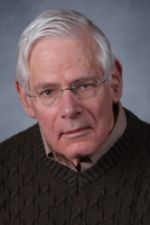 Dr. Robert Kane was dean of the University of Minnesota’s School of Public Health from 1985 to 1990. He holds the Minnesota Chair in Long-Term Aging and has served as director of Clinical Outcomes Research since 1993 and director of the Center on Aging since 1994.
Dr. Robert Kane was dean of the University of Minnesota’s School of Public Health from 1985 to 1990. He holds the Minnesota Chair in Long-Term Aging and has served as director of Clinical Outcomes Research since 1993 and director of the Center on Aging since 1994.
Interview Abstract
Dr. Robert Kane begins his interview with a description of his early life and education. He reflects on his medical training, his time with the Indian Health Service, and his efforts to establish a Department of Family and Community Medicine at the University of Utah. Dr. Kane then discusses his move to RAND in Santa Monica, CA, his work on what would become Value-Based Purchasing, his work on the needs for geriatric manpower, his work establishing the Division of Geriatrics at UCLA, and various lines of research that connected to his work at RAND and UCLA. The conversation turns toward Dr. Kane’s time at the University of Minnesota. He describes the following topics: his goals in becoming dean of the School of Public Health; his reorganization of the School, including moving and eliminating departments and divisions; funding for the School; his work with the Legislature; shifts in public health research; methods of evaluation he tried to establish in the School; division loyalty within the School; and his reasons for stepping down as dean. Reflecting on the larger contexts of the AHC and the University, Dr. Kane discusses all of the following: financial problems in the AHC; the sale of University Hospital to Fairview; Neal Vanselow and Cherie Perlmutter’s leadership in the AHC; and problems with collaboration in the AHC. He describes efforts to admit minority students; the regional importance of the School; deans of the School after he stepped down; Ken Keller’s Commitment to Focus plan; William Brody and Frank Cerra’s tenures as vice president of the AHC; and the joining of the positions of medical school dean and vice president for the AHC. He concludes with the need for more healthcare delivery research at the University and John Finnegan’s tenure as dean of the School.
Biographical Sketch
Robert Kane was born in New York City, where spent the early part of his life. His family then moved to Toronto, Canada, where he attended high school and started college. He returned to New York City to attend Columbia University and completed his undergraduate work in 1961. In 1965, Kane earned his M.D. from Harvard Medical School, specializing in preventive medicine. He completed his internship and residency at the University of Kentucky at Lexington and fulfilled his military service with the Indian Health Service on the Navaho Reservation in New Mexico and at the U.S. Public Health Service in Denver, CO. He began his academic career at the University of Utah, serving as a professor in the Department of Family and Community medicine from 1970 to 1977. From 1977 to 1985, he was a senior research at The RAND Corporation and held a joint appointment at the University of California, Los Angeles in the School of Public Health and the Department of Medicine. He was recruited to serve as dean of the University of Minnesota’s School of Public Health in 1985. He stepped down as dean in 1990 but remained a professor in the School. Over the course of his career, his major research has involved geriatric health and long term care, the relationship between acute and chronic care, health outcomes, and managed care. He holds the Minnesota Chair in Long-Term Aging and has served as director of Clinical Outcomes Research since 1993 and director of the Center on Aging since 1994.
Interview Transcript